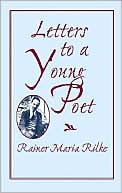



Want more? YES, PLEASE!

The novel is set in
However, there is so much more. Not only are we asked to witness a dramatic story, but also to experience this journalist awakening to the reality he's been trying so hard to ignore. Ultimately, there is also a need to think about the role of intellectuals, literature and the media in dark times when politics, religion, history and believes are being challenged.
I was wondering about the reason of the"declares" in the title (which is also present throughout the novel), about the tone resembling a police interrogation and I came to realize that without it the novel would have lost much of its power. The menacing atmosphere would have been more difficult to grasp. I believe that here, in these two simple words
All in all, I found it absolutely brilliant, not just because of the story or the way it is written, but also because it has something that all readers love: a wealth of knowledge that can only open doors. Think of it: it mentions Pessoa, Maupassant, García Lorca, Mann, Rilke, Balzac, Daudet, T.S. Eliot. Aren't you just as curious as me?
Antonio Tabucchi is an Italian writer.
There is also a film.
By the way, I read the Spanish version Sostiene Pereira.

